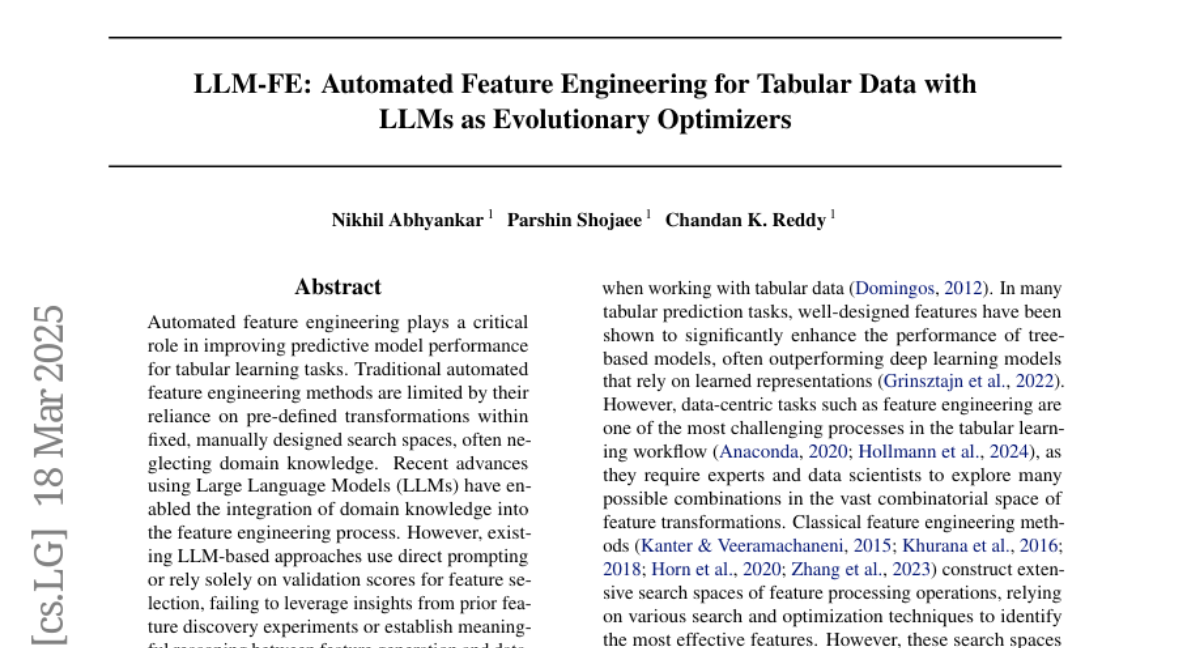LLM-FE: Automated Feature Engineering for Tabular Data with LLMs as Evolutionary Optimizers
Nikhil Abhyankar, Parshin Shojaee, Chandan K. Reddy
2025-03-20

Summary
This paper is about using AI to automatically create new features from data, making it easier for other AI models to make accurate predictions.
What's the problem?
Creating the right features from data can be difficult and time-consuming, often requiring expert knowledge.
What's the solution?
The researchers developed a system called LLM-FE that uses AI to automatically generate new features by exploring different combinations and transformations of the existing data.
Why it matters?
This work matters because it can automate a crucial step in the AI development process, allowing data scientists to build more accurate models more quickly.
Abstract
Automated feature engineering plays a critical role in improving predictive model performance for tabular learning tasks. Traditional automated feature engineering methods are limited by their reliance on pre-defined transformations within fixed, manually designed search spaces, often neglecting domain knowledge. Recent advances using Large Language Models (LLMs) have enabled the integration of domain knowledge into the feature engineering process. However, existing LLM-based approaches use direct prompting or rely solely on validation scores for feature selection, failing to leverage insights from prior feature discovery experiments or establish meaningful reasoning between feature generation and data-driven performance. To address these challenges, we propose LLM-FE, a novel framework that combines evolutionary search with the domain knowledge and reasoning capabilities of LLMs to automatically discover effective features for tabular learning tasks. LLM-FE formulates feature engineering as a program search problem, where LLMs propose new feature transformation programs iteratively, and data-driven feedback guides the search process. Our results demonstrate that LLM-FE consistently outperforms state-of-the-art baselines, significantly enhancing the performance of tabular prediction models across diverse classification and regression benchmarks.